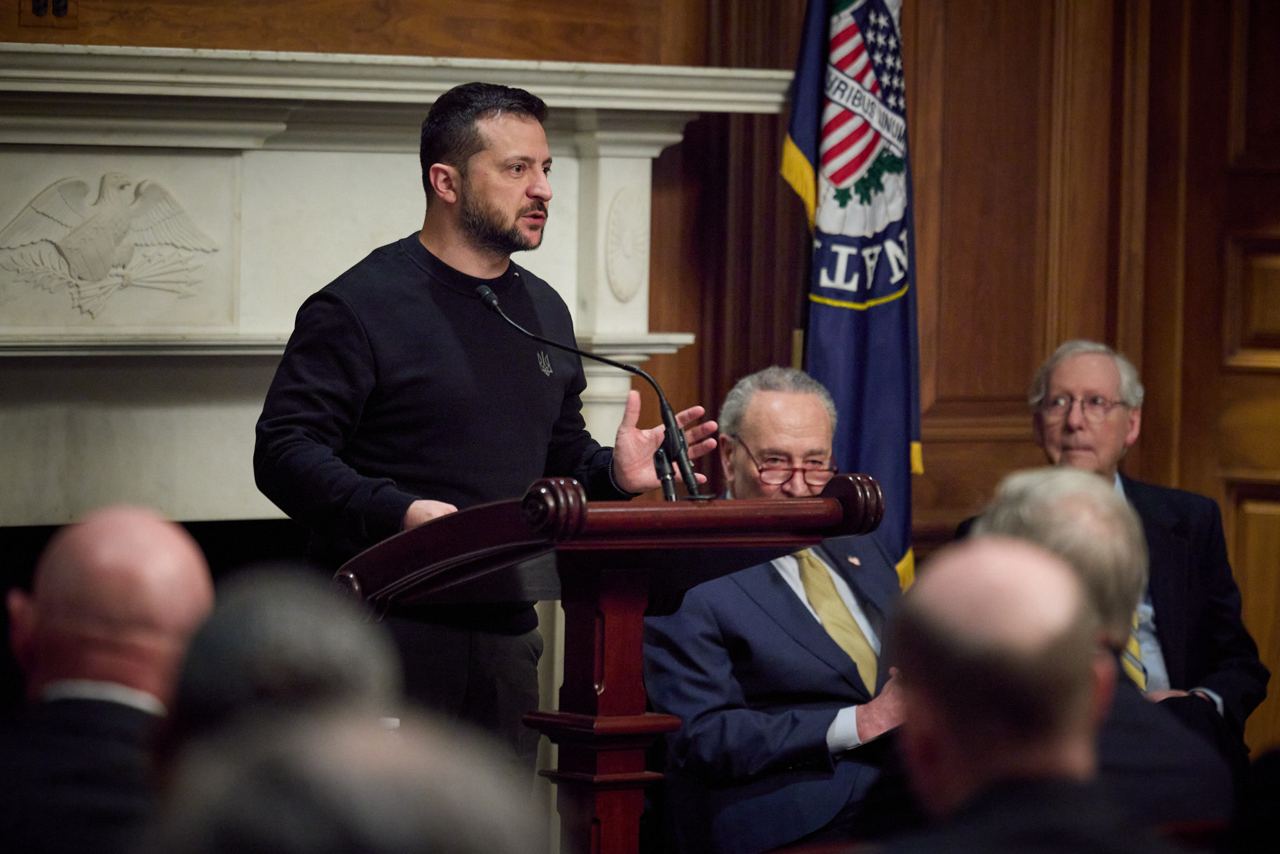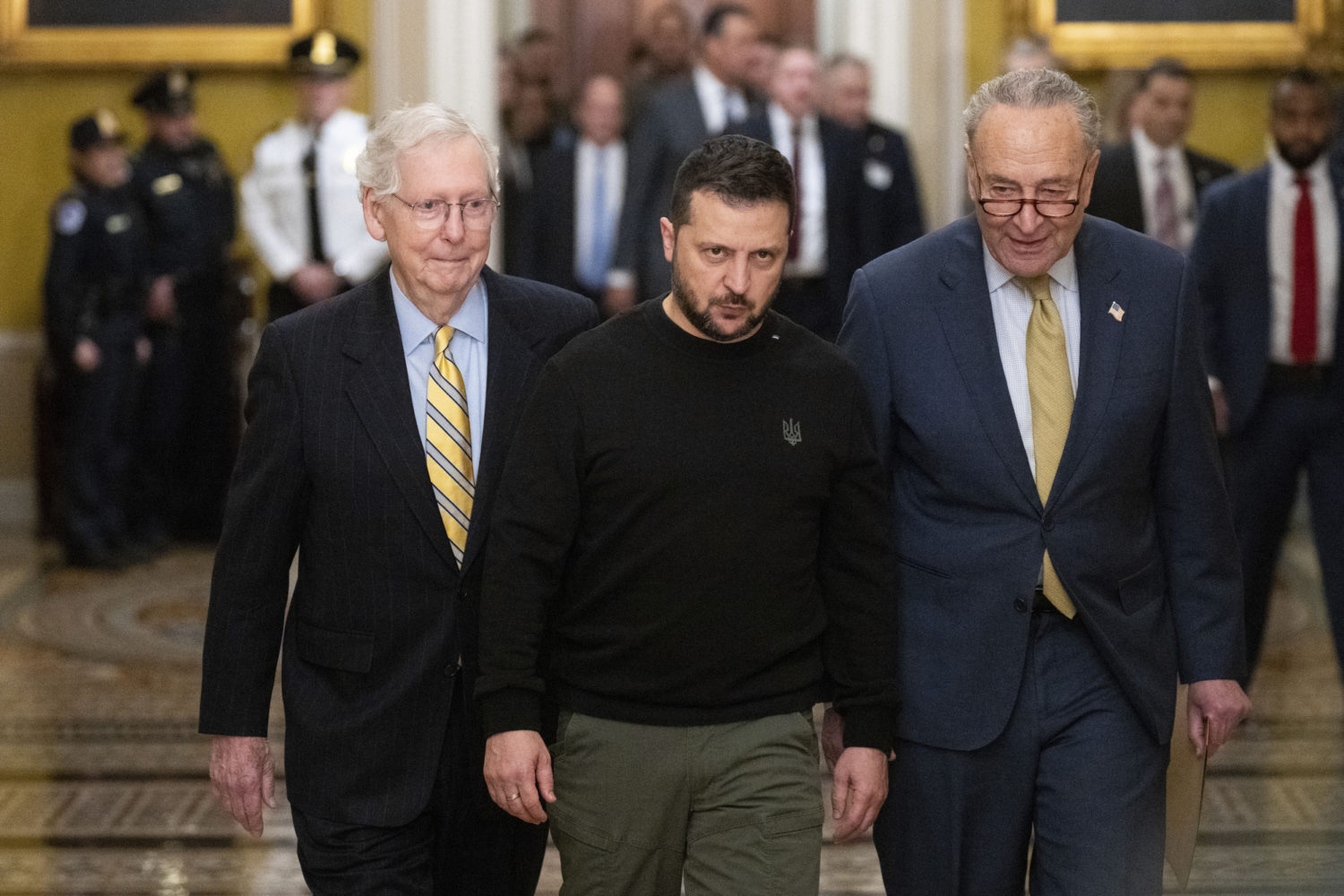Ukrainian-American relations have always been complicated. Even though Washington remains one of Kyiv's main strategic allies in defending against Russian aggression, allocating over $70 billion, its attitude towards Ukraine has not always been so favorable.
Factors impacting how ties between the two countries developed include the collapse of the Soviet Union, political turbulence in Ukraine, and frequent changes in party leadership in Washington.
Fighting off the Russian invasion, Ukraine has declared itself a champion of democracy and freedom. Yet even this does not convince American politicians to provide stable support during pivotal moments in Ukrainian history.
It’s easy to blame Washington, but every state prioritizes its own interests first, even over those of close allies. Instead of criticism, Ukraine should consider what it can do to secure steady American backing across presidential administrations and Congress, especially with the public and civil society.
There is no one-size-fits-all approach for success in such a complex system. But there are ways to improve. Ukraine must convince Americans it shares their values of freedom, democracy, and human rights. This requires continued progress on crucial reforms even amid war, communicating regularly with all levels of US leadership, and building societal bridges through educational and cultural exchanges.
Ukraine's Republican problem

Current challenges mostly concern the US commitment to support Ukraine till Kyiv's victory.
Ukraine currently faces a major problem - the lack of bipartisan Congressional support for decisive military aid action. The discussion of a $106 billion package, $66 billion of which should go to Ukraine, shows how US internal political battles can harm Ukraine’s defense against Russian aggression.
Observers may find dissonance between pro-Ukrainian Republican rhetoric and the lack of Congressional consensus on aid. The main factor is the 2024 election, where voters will elect a new House, a third of the Senate, and many governors. Given Donald Trump’s likely Republican nomination, many in his party adjust positions to secure re-election.
Whether a compromise happens or not, this case signals Ukraine must build better advocacy of its interests in the US Understanding 2024’s election year dynamics is key.
Even with this aid package, Ukraine must properly interact with US party leaders and legislators to maintain strong relations despite partisan divisions in the coming year. Such strategic advocacy efforts will not only sustain US ties but also insulate Kyiv from partisan battles on Capitol Hill.
Advocacy strategy for the future
Ukrainian classical diplomacy works very fruitfully to ensure daily dialogue with the United States. It is thanks to the Embassy of Ukraine in the USA that every office of a congressman, senator, and, of course, administration office has access to the most important information. This especially applies to Ukraine's progress on reforms on the way to the EU, work on improving its own military-industrial complex, and the creation of new initiatives for better equipping the Ukrainian army.
All these signals were sent to the White House, including during Ukraine's President Volodymyr
Zelenskyy's visit to Washington.
Many sources discuss that the main effort of the Ukrainian leader, and earlier also of the Ukrainian delegations, was to convince the Republicans to approve aid to Ukraine after all. However, the majority of Republicans remain pro-Ukrainian but cannot afford to score additional electoral points for the Democrats and the White House, which, in the event of the approval of aid to Ukraine, Israel, and Taiwan, would receive a major foreign policy victory, which would surely turn into domestic recognition.
Speaking of the former, it's the creation of new jobs and orders that could have an impact on Republicans who traditionally support industry and improve the lives of blue-collar America. The White House administration has already taken the first step to mobilize this sector by publishing a special report on the states that benefit the most from receiving contracts for military orders for Ukraine.
Among them are Pennsylvania, Texas, Arizona and Wisconsin. This was very successfully used to advocate the need for continued aid because it was very clearly emphasized that many, often even most, Republicans representing these states oppose continued support for Ukraine.
The Office of the President of Ukraine also organized meetings with the military-industrial complex and the US-Ukraine Defense Industrial Base Conference, which is the first powerful step in the context of advocacy in this direction.
Ukraine ramps up weapons production with US, Italian support
If the military-industrial complex is about providing finances and jobs, and this is a more technical advocacy strategy, then American civil society and voters are the factors that can quite actively influence active support for Ukraine.
According to the data of a recent Gallup analysis, 54% of Americans still support Ukraine in reclaiming territory, against 43% who believe that the war must end at any cost. Another metric shows that only 41% believe the US provides too much aid to Ukraine, while 58% say it is either the right amount or insufficient.
In addition, Hill, after analyzing several polls of Republican voters and comparing them with the rhetoric of the presidential candidates at the debates, determined that the voters are much more pro-Ukrainian than their candidates. Even at a time when the issue of Ukraine recedes into the background on Capitol Hill, American voters, Democrats, and Republicans continue to support Ukraine in the majority.
Of course, support is not as certain as it was a year ago, but it is the advocacy of Ukrainian interests for American voters that can become a factor in quality decisions by their representatives. The most effective tools, of course, are the media, including interviews, films, and other projects for promoting the issue of strategic cooperation with Ukraine. American society pays attention to the symbolism of the struggle for freedom and democracy, and this should become an important message for stable American-Ukrainian relations.
Navigating the complex landscape of Ukrainian-American relations demands a strategic approach to advocacy that goes beyond traditional diplomatic channels. Recognizing the internal challenges within the US political system, particularly during election years, Ukraine must proactively engage with key stakeholders to secure consistent bipartisan support for its interests.
To address the current challenges, a multifaceted advocacy strategy is essential. Mobilizing the American military-industrial complex through initiatives that create jobs and opportunities, especially in states that benefit from military contracts with Ukraine, can sway traditionally industry-supportive Republicans.
Moreover, engaging American civil society and voters is equally crucial. Leveraging public support, which remains favorable toward Ukraine, can influence decision-makers.

